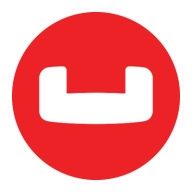


Find out what your peers are saying about MongoDB, Microsoft, ScyllaDB and others in NoSQL Databases.
| Product | Market Share (%) |
|---|---|
| ScyllaDB | 8.9% |
| Couchbase Enterprise | 8.5% |
| Cassandra | 8.7% |
| Other | 73.9% |



| Company Size | Count |
|---|---|
| Small Business | 8 |
| Midsize Enterprise | 1 |
| Large Enterprise | 13 |
| Company Size | Count |
|---|---|
| Small Business | 8 |
| Midsize Enterprise | 2 |
| Large Enterprise | 7 |
| Company Size | Count |
|---|---|
| Small Business | 3 |
| Midsize Enterprise | 2 |
| Large Enterprise | 8 |
Cassandra is a distributed and scalable database management system used for real-time data processing.
It is highly valued for its ability to handle large amounts of data, scalability, high availability, fault tolerance, and flexible data model.
It is commonly used in finance, e-commerce, and social media industries.
Couchbase Enterprise offers powerful data management capabilities with features like horizontal scalability, ease of use, and flexible tools for business applications. Designed for high performance and reliability, it supports multi-master capability and low latency, making it ideal for dynamic environments.
Designed for businesses needing crucial data management, Couchbase Enterprise offers advanced indexing, analytics engines, and efficient storage for performance enhancement. It provides flexibility with data types, robust data sync, and supports a dynamic API for seamless integration. Its intuitive query language simplifies operations, ensuring businesses navigate effortlessly while enjoying high availability and extensive features. Despite this, challenges exist in areas like manual failover processes, complex upgrades, and UI limitations, necessitating enhancements in concurrency, integration, and security features. Performance issues on certain platforms add to the need for improved documentation and support.
What are Couchbase Enterprise’s most important features?Couchbase Enterprise is deployed across industries for its excellent data handling capabilities. It empowers telemedicine, e-commerce, gaming, and telecommunications sectors by offering efficient data link utilization, caching, and logging. Some companies leverage its real-time data replication with Elasticsearch for high-performance operational needs, while others benefit from its capabilities in managing reads and writes in iGaming. Retail industries use its document-based storage for structured inventory management, and cloud migrations are simplified with support from Capella.
ScyllaDB is an open-source, distributed NoSQL wide-column datastore (a highly scalable NoSQL database), known for its compatibility with Apache Cassandra, and for supporting the same protocols as Cassandra (CQL and Thrift) and the same file formats (SSTable). ScyllaDB is designed for high throughput and low latency, making it suitable for data-intensive applications. Its architecture allows it to deliver remarkable performance on a massive scale, utilizing modern multi-core servers to their fullest potential
ScyllaDB utilizes a similar architecture, data format, and query language as Apache Cassandra, providing compatibility while dramatically improving speed and scalability.
The key advantages of ScyllaDB include its rewritten C++ implementation that eliminates Cassandra's expensive Java garbage collection pauses, built-in caching for fast access to frequently used data, and shard-aware drivers for direct routing of requests. This enables it to fully leverage modern multi-core servers for massive parallelism. The community is active and the latest major release, ScyllaDB Enterprise 2023.1.0 LTS, incorporates over 5,000 code commits focused on enhancing capabilities.
ScyllaDB supports wide-column data modeling for fast read performance at scale. It includes integrated monitoring and management tools to track database health and performance. For organizations looking to boost speed and reduce costs for NoSQL workloads, ScyllaDB offers a drop-in replacement for Cassandra that delivers lower latency, higher throughput, and increased scalability with fewer nodes. Its seamless migration path makes switching from Cassandra seamless, requiring minimal code changes.